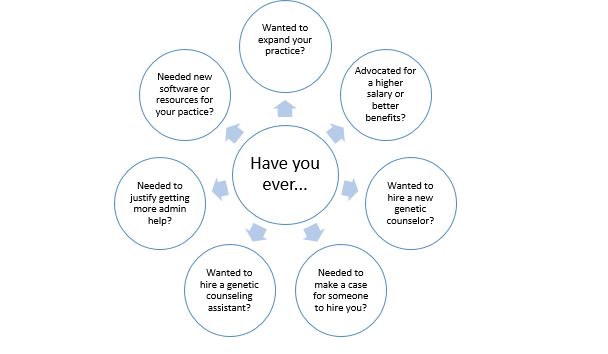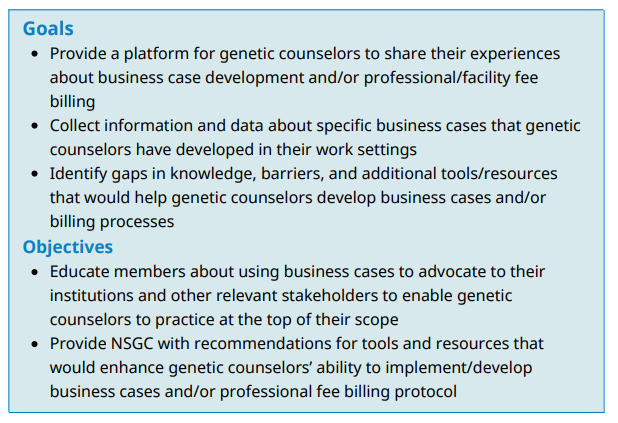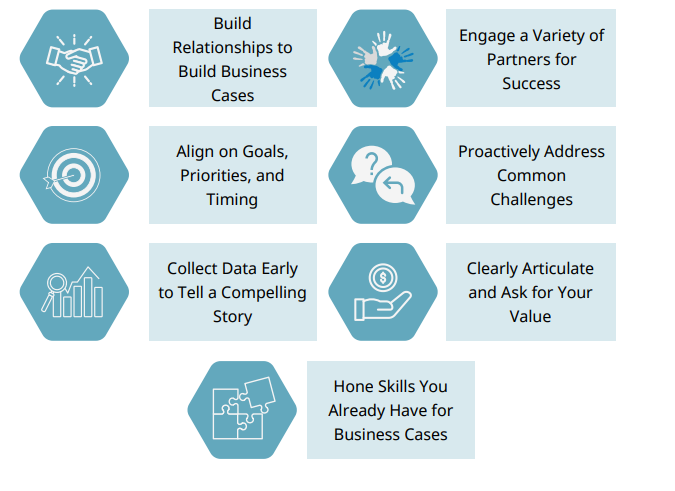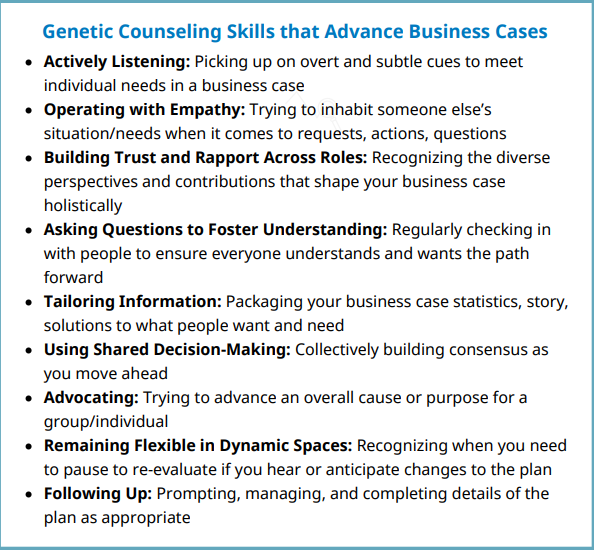The Case for the Business Case: Why You Should Know How to Develop A Business Case
Many genetic counselors may hear the term ‘business case’ and pay no attention. Business cases can be used to hire, utilize and retain genetic counselors. Thus, business cases can be a valuable tool in addressing rising workforce demands for equitable access to genetic counseling services.
Opportunities for Genetic Counseling Business Case Development

Many of you have advocated for new positions or other support without realizing you were developing a business case. While genetic counselors have the skills to develop business cases, most have little to no experience in the business realm. Genetic counselors need a confidence-boost in recognizing how their existing skills translate to the business of genetic counseling. Understanding that the work you may already be doing is actually a business case can help you successfully present and support your proposal. Genetic counselors who demonstrate an interest in the business of our profession are more likely to be invited to the table when important decisions are being made.
NSGC sought to support genetic counselors in these efforts by holding the Business Case Summit (BCS) on June 16, 2021. The Business Case Workgroup of the Access and Service Delivery (ASD) Committee was charged with hosting and organizing the event. You can read the introductory whitepaper, ‘An introduction to the Genetic Counseling Business Case Experience’, here.
Business Case Summit Goals and Objectives

All summit participants had experience with developing business cases, and the majority reported experience with developing genetic counseling billing protocols. Most participants reported no prior experience or formal training with developing business cases before the need arose and learned on the job or through job-related mentorship. One of the common challenges reported with business case development was the availability of data and metrics on which to base a business case. Summit participants highlighted the importance of collecting data before a specific need is identified. Multiple metrics were discussed, including billing revenue, downstream revenue, patient outcomes, and other data to demonstrate the value of genetic counseling. And finally, persistence was key to success for the summit participants, as 60% did not have their business case approved on their first attempt.
Seven themes were identified during the BCS and expanded upon in the whitepaper, ‘An Introduction to the Genetic Counseling Business Case Experience’.

While the Whitepaper introduces the importance of business cases in our profession, it is recognized that the NSGC membership needs more tools to aid genetic counselors in these efforts. Plans are being developed for a Business Case Toolkit that will include a variety of resources, templates and business case examples to help your ideas and proposals become a reality.
The Business Case Workgroup encourages you to consider how your skills can contribute to current or future business case efforts. You may be surprised how many genetic counseling specific skills translate into business skills that can really make an impact.

Erin M Miller, MS, CGC is a cardiac genetic counselor at Cincinnati Children’s Hospital Medical Center. She is the current chair of the Business Case Workgroup in the Access and Service Delivery Committee, and also the co-lead for the NSGC Hypertrophic Cardiomyopathy Practice Guideline writing group.
Breanna Roscow, MS, CGC is a Regional Medical Specialist in oncology at Myriad Genetics. She is currently the vice-chair of the Business Case Workgroup in the Access and Service Delivery Committee, and also a member of the Professional Status Survey subcommittee.